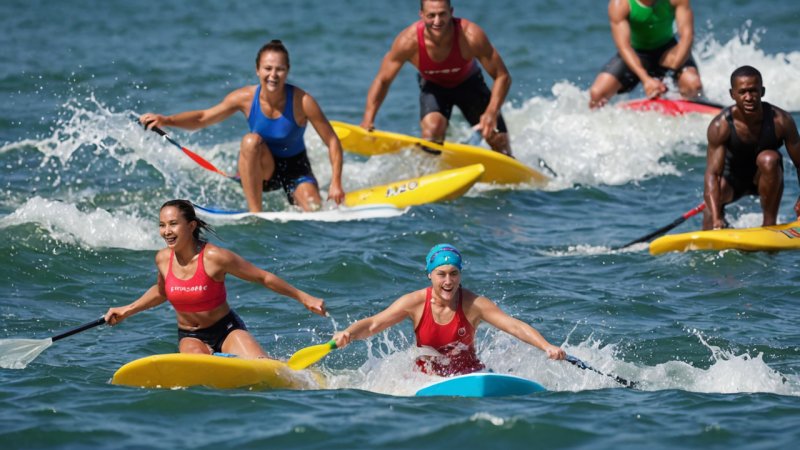In the world of water sports, endurance is key to achieving peak performance. Whether you’re swimming, kayaking, or participating in water polo, the ability to sustain energy levels throughout your activity can make all the difference. One of the most significant factors influencing endurance is nutrition. This article explores how proper dietary choices can enhance performance in water sports.
Nutrition serves as the fuel for athletes, particularly in sports that demand high levels of stamina. Consuming the right balance of macronutrients—carbohydrates, proteins, and fats—can help athletes maximize their energy reserves. Carbohydrates are particularly crucial, as they provide the body with readily available energy. For water sports, which often involve prolonged periods of exertion, athletes should focus on complex carbohydrates such as whole grains, fruits, and vegetables. These sources not only supply sustained energy but also include essential vitamins and minerals that support overall health.
Hydration is another critical element in maintaining endurance. Water sports can be deceiving; while athletes are surrounded by water, they still risk dehydration. Losing even a small percentage of body weight due to fluid loss can impair performance. Therefore, it's important for athletes to drink water regularly before, during, and after their activities. In some cases, electrolyte drinks may be beneficial, especially for those engaging in longer sessions or in warmer environments.
Protein plays a vital role in recovery and muscle repair. After intense training or competition, athletes should aim to consume protein-rich foods to help rebuild muscle tissues that have been strained. This can include lean meats, fish, dairy products, or plant-based options like legumes and nuts. Timing is also important; consuming protein shortly after a workout can enhance recovery and prepare the body for the next session.
Fats, often overlooked, also serve a purpose in an athlete's diet. Healthy fats, such as those found in avocados, nuts, and olive oil, can provide a concentrated source of energy. Incorporating these fats into meals can help athletes maintain their energy levels during prolonged water activities.
In addition to macronutrients, micronutrients should not be neglected. Vitamins and minerals like iron, calcium, and magnesium are essential for optimal performance. Iron, for instance, is crucial for oxygen transport in the blood, which is particularly important for endurance athletes. A well-rounded diet rich in fruits and vegetables can help ensure that athletes meet their micronutrient needs.
In conclusion, nutrition plays a crucial role in enhancing endurance for athletes engaged in water sports. A balanced diet rich in carbohydrates, proteins, healthy fats, and essential vitamins and minerals can significantly impact performance and recovery. By prioritizing nutrition, athletes can improve their endurance and stay safe while enjoying their favorite water activities.






